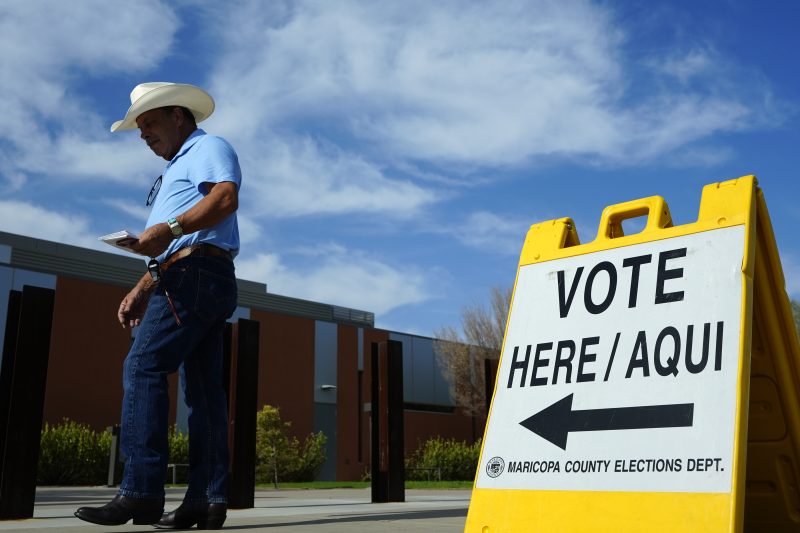
Arizona Supreme Court Upholds Full Voting Rights for Citizens Without Proof of Citizenship
In a recent ruling by Arizona’s top court, voters who fail to provide proof of citizenship can still receive full ballots, a decision that carries significant implications for voting rights and processes in the state. The ruling has sparked debate and discussion among legal experts, politicians, and advocacy groups alike, as it touches on important issues surrounding voter eligibility and access to the electoral process.
At the heart of the matter is the requirement that voters must show evidence of citizenship in order to receive a full ballot in Arizona. This requirement had been challenged by voting rights activists who argued that it placed an undue burden on certain groups of voters, particularly those who may have difficulty obtaining the necessary documentation.
The Arizona Supreme Court’s decision to allow voters without proof of citizenship to still receive full ballots is a significant win for voting rights advocates. By removing this barrier, the court has taken a step towards ensuring that all eligible voters have the opportunity to participate in the democratic process, regardless of their individual circumstances.
However, the ruling has not been without controversy. Critics of the decision have raised concerns about the potential for voter fraud and the integrity of the electoral system. They argue that by allowing voters to cast full ballots without proof of citizenship, the court may be opening the door to potential abuses and undermining the legitimacy of the election process.
Despite these concerns, supporters of the ruling point to the importance of ensuring that all eligible voters have the opportunity to have their voices heard. By removing unnecessary barriers to voting, such as the proof of citizenship requirement, the court has helped to promote inclusivity and accessibility in the electoral process.
Moving forward, it will be important for Arizona officials to implement the court’s ruling in a way that upholds the integrity of the electoral system while also protecting the rights of all voters. By continuing to monitor and address any potential issues that may arise, Arizona can work towards a more equitable and inclusive voting process for all residents of the state.
